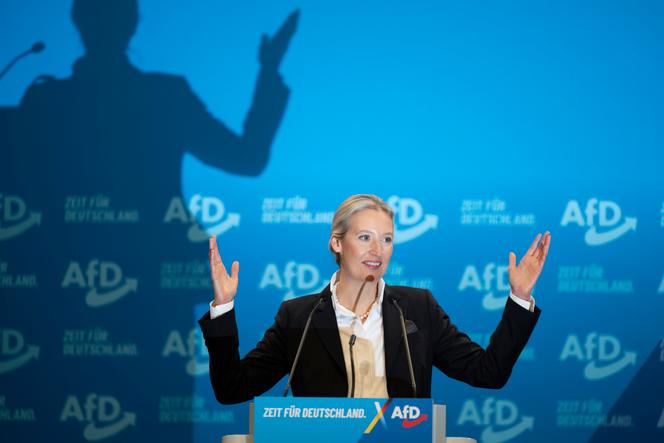


The drawing, stylized in black and white, depicted a male profile, with blond hair cut short at the temples, and a lock of hair standing out at the top of the skull. It also came with an explicit message, written in Gothic letters: "We are the youth. Without immigrant backgrounds." The poster, stuck to a road sign just a few meters from the conference center in Riesa, Saxony, where the far-right party Alternative for Germany (AfD) had gathered together its activists and delegates, on January 11 and 12, six weeks before the country's February 23 federal parliamentary elections. Thousands of protestors, who were, in turn, surrounded by dozens of police officers, had come from all over Germany to try to prevent the meeting from taking place. They demonstrated in trucks blasting techno music before stunned local residents – all to no avail. Despite being two hours behind schedule, Alice Weidel, 45, co-president of the far-right AfD party, was unanimously elected – in a non-secret vote (voters had to stand up to show their opposition) – as the party's candidate for the chancellorship on Saturday, January 11.
This marked the first ever time that the party has put forward a candidate for chancellor. Moreover, among this male-dominated party, the electoral base of which is mostly located in eastern Germany, Weidel cuts an unusual figure: Originally from – and elected in – the country's west, the former Goldman Sachs analyst is an openly lesbian woman, and lives together with a producer of Sri Lankan origin, raising two boys together. Her private life serves as a formidable shield against the accusations that have been leveled at the party. Nevertheless, at the party congress, a Thuringian politician's resolution defining the notion of a "family" as being "composed of a father, a mother and children" was adopted for inclusion in the party's platform.
You have 70.06% of this article left to read. The rest is for subscribers only.
